Filter by

Literature, science and public policy from Darwin to genomics
Literature, Science, and Public Policy shows how literature and literary study can help shape public policy concerning controversial scientific issues such as genetic engineering, cloning, GMOs, gene editing, and more. Literature brings unique insights to these issues, dramatizing their full complexity. Its value for public policy is demonstrated by striking examples in chapters that take …
- Edition
- -
- ISBN/ISSN
- 9781009263504
- Collation
- xviii, 244 pages; illustration
- Series Title
- -
- Call Number
- 823.009 CLA l

Science in the forest, science in the past
This collection brings together leading anthropologists, historians, philosophers, and artificial-intelligence researchers to discuss the sciences and mathematics used in various Eastern, Western, and Indigenous societies, both ancient and contemporary. The authors analyze prevailing assumptions about these societies and propose more faithful, sensitive analyses of their ontological views about…
- Edition
- -
- ISBN/ISSN
- 9781912808427
- Collation
- xii + 278 p
- Series Title
- -
- Call Number
- 111 GEO s

The first to be destroyed : the Jewish community of Kleczew and the beginning…
The Jewish community of the city of Kleczew came into existence in the sixteenth century. It remained large and strong throughout the next four hundred years, and in the eighteenth and nineteenth centuries it constituted 40-60% of the total population. The German army entered Kleczew on September 15, 1939, shortly after the outbreak of World War II. The communities of Kleczew and the vicinity w…
- Edition
- -
- ISBN/ISSN
- 9781618112859
- Collation
- xxvii + 622 p
- Series Title
- -
- Call Number
- 940.531844 WME f
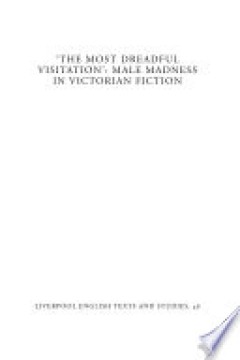
The most dreadful visitation : male madness in Victorian fiction
Victorian literature is rife with scenes of madness, with mental disorder functioning as everything from a simple plot device to a commentary on the foundations of Victorian society. But while madness in Victorian fiction has been much studied, most scholarship has focused on the portrayal of madness in women; male mental disorder in the period has suffered comparative neglect. In ‘The Most D…
- Edition
- -
- ISBN/ISSN
- 9781846314186
- Collation
- 192 p
- Series Title
- -
- Call Number
- 823.8093561 VAL m
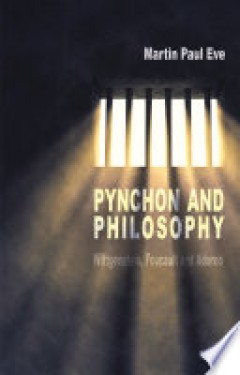
Pynchon and Philosophy: Wittgenstein, Foucault and Adorno
The writings of Thomas Pynchon have spawned more critical commentary than almost any other American author of the last fifty years. Pynchon’s texts are perhaps most famed for their ‘difficulty and apparent unfriendliness’, as works that require, as Inger H. Dalsgaard, Luc Herman and Brian McHale put it, ‘a collective enterprise of reading wherein none of us could succeed without the hel…
- Edition
- 1
- ISBN/ISSN
- 9781137405500
- Collation
- XIII, 229p
- Series Title
- -
- Call Number
- 813.5409 MAR

Football in fiction: a history
Football in Fiction represents the most comprehensive historical mapping and analysis of novels related to association football (soccer). It offers a theoretically informed field guide, a scholarly cartography of football fiction’s uncertain – and until now – only partially explored terrain. Combining an extensive search for texts with up-to-date academic research, journals, surveys, c…
- Edition
- -
- ISBN/ISSN
- 9780429344053
- Collation
- ix, 184 p
- Series Title
- -
- Call Number
- 809.393579 LEE f
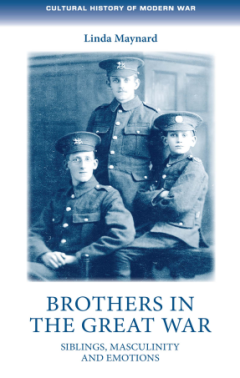
Brothers in the Great War : siblings, masculinity and emotions
When war broke out in August 1914, William ‘Percy’ Campbell volunteered immediately. Commissioned in the Wiltshire Regiment, he joined the 7th Division, fighting in the First Battle of Ypres. Killed in action on 24 October 1914, aged just twenty years, he had been on active service a mere seventeen days. His body was never recovered. Almost sixty years later, his younger brother Pat wr…
- Edition
- -
- ISBN/ISSN
- 9781526146151
- Collation
- 311p
- Series Title
- -
- Call Number
- 306.87509041 LIN b
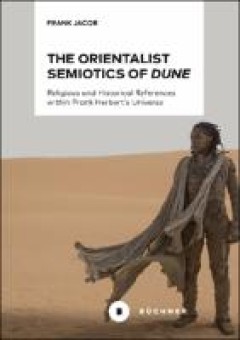
The orientalist semiotics of dune religious and historical references within …
Frank Herbert’s »Dune« (1965) is considered to be one of the most successful Science Fiction novels of the 20th century. It introduces its readers to a future universe, in which the production of the most valuable resource of the universe – ›spice‹ – is only possible on one vast desert planet called Arrakis. »Dune« offers many different motifs, including a hero that eventually tur…
- Edition
- -
- ISBN/ISSN
- 9783963173028
- Collation
- ill; 118 p.
- Series Title
- -
- Call Number
- 300 JAC t
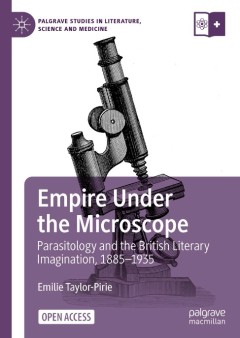
Empire Under the Microscope : Parasitology and the British Literary Imaginati…
This open access book considers science and empire, and the stories we tell ourselves about them. Using British Nobel laureate Ronald Ross (1857-1932) and his colleagues as access points to a wider professional culture, Empire Under the Microscope explores the cultural history of parasitology and its relationships with the literary and historical imagination between 1885 and 1935. Emilie Taylor…
- Edition
- -
- ISBN/ISSN
- 9783030847173
- Collation
- xiii, 294 p.
- Series Title
- -
- Call Number
- 823.8093561 EMP E
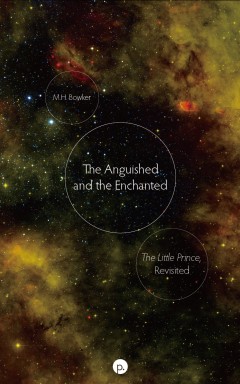
The anguished and the enchanted : The little prince revisited
"In The Anguished and the Enchanted, M.H. Bowker offers a lengthy critical essay and richly annotated English translation of a lost Finnish translation of Antoine de Saint-Exupéry’s The Little Prince. Featuring a substantial Translator’s Preface, M.H. Bowker develops a psychoanalytic lens through which to regard Saint-Exupéry’s classic work, offering a more nuanced and less ""fable-esqu…
- Edition
- 6
- ISBN/ISSN
- 9781953035554
- Collation
- 120p
- Series Title
- -
- Call Number
- 843.912 ANG M
 Computer Science, Information & General Works
Computer Science, Information & General Works  Philosophy & Psychology
Philosophy & Psychology  Religion
Religion  Social Sciences
Social Sciences  Language
Language  Pure Science
Pure Science  Applied Sciences
Applied Sciences  Art & Recreation
Art & Recreation  Literature
Literature  History & Geography
History & Geography